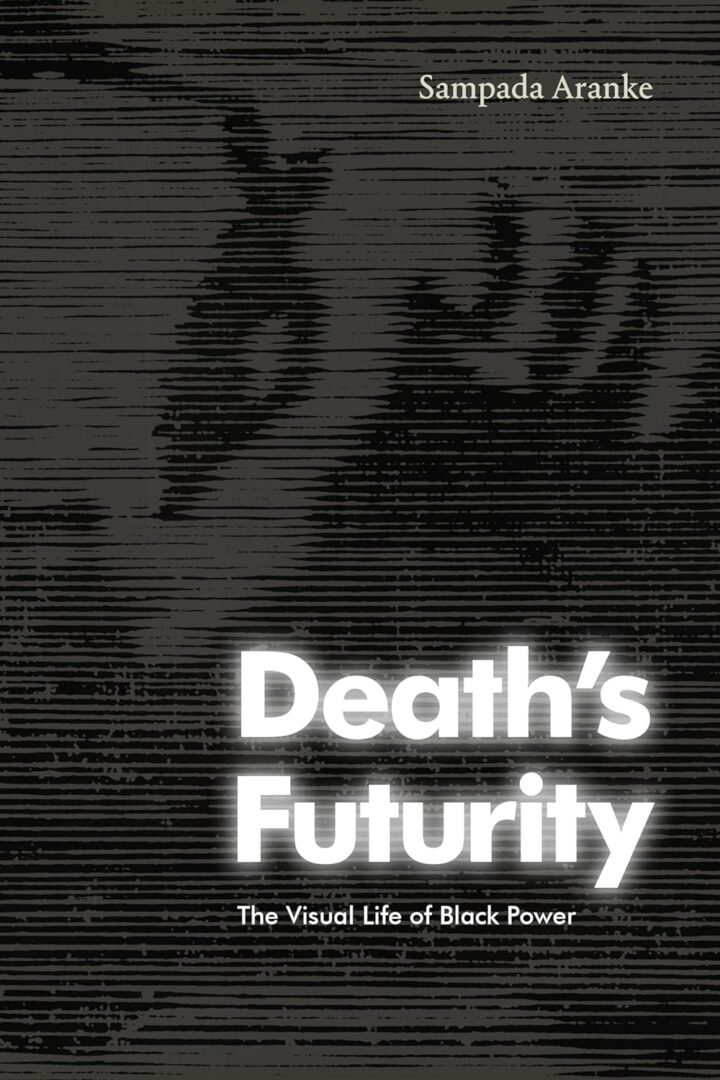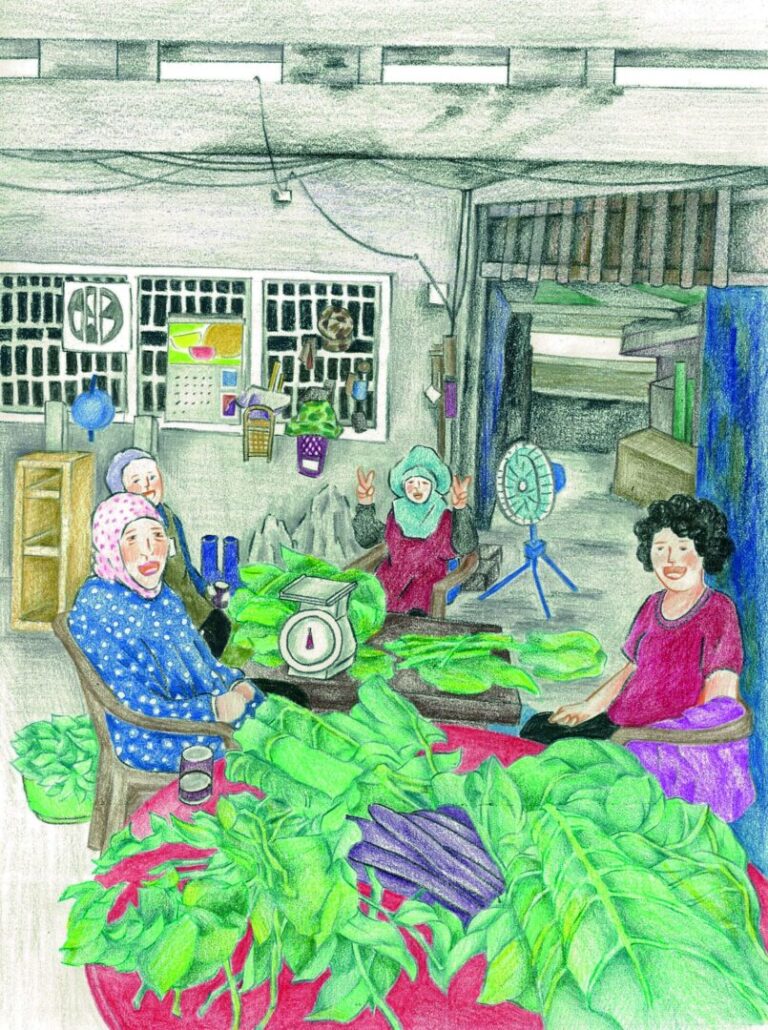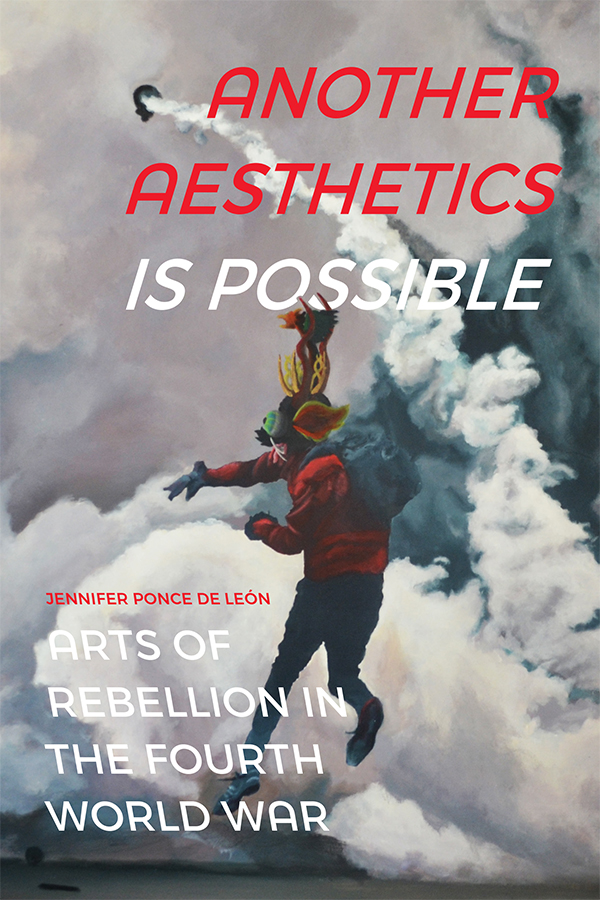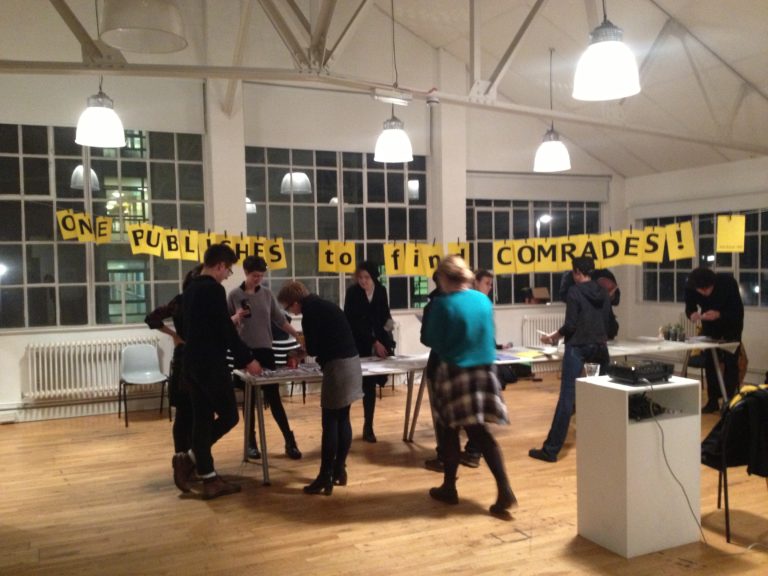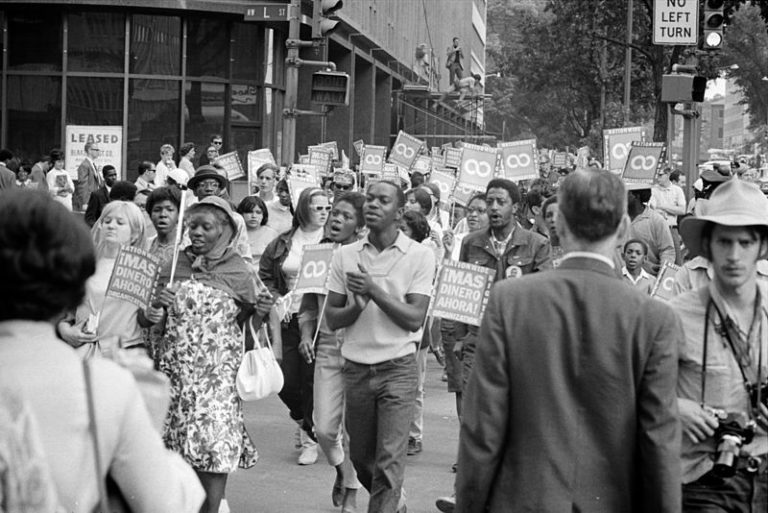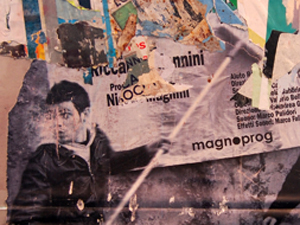Sampada Aranke’s Death’s Futurity: The Visual Life of Black Power begins by insisting on the importance of visual culture to the Black Panther Party’s platform before exploring the Party’s use of political posters, flyers, magazine covers, a documentary, and other ephemera to mobilize community members in the wake of the state’s murder of Bobby Hutton, Fred Hampton, and George Jackson. In doing so, Aranke argues that the BPP “transformed these state-sanctioned murders into opportunities to engage political action” (2). Cautiously navigating the speculative and often violent nature of the archive when it comes to Black life and death, Aranke draws on the work of theorists like Saidiya Hartman and Christina Sharpe to balance storytelling with first-person narratives, archival coverage, and political theory from the era. Throughout, Aranke centers the importance of fugitivity and futurity to the Black Panther Party, which suggests a deep connection between the Black power movement and the prison abolition movement. Indeed, toward the end of Death’s Futurity, Aranke argues that these “spectacularized murders mark a transition from Black Power to prison abolition.” While I hoped for a more robust discussion of the transition between these intimately linked movements, Aranke’s Death’s Futurity nonetheless offers a critical exploration of the use of visual culture in revolutionary movements.
Keyword: social movements
From Housewives to Homemakers: Civic Engagement, Imagination, and Déjà Vu in Taiwan
In a democratic country like Taiwan, civic participation generally takes place everywhere and every day in various forms, such as petitioning, community building, and protesting, and it is too mundane to be noted. Not until the moment of crisis could the energy it has harbored be seen. COVID-19 undoubtedly is a challenge for all humans in the world. Misfortune as it was, this state of exception presented people with resilience and creativity to assist one another. Starting from an incident of “veg boxes” during the pandemic, this article tries to connect the optimistic view toward social changes with its possible model. By linking Homemakers United Foundation, a local organization closely related to food and environmental issues, and its development to the history of nation-building, this article also discusses what kind of civic imagination has been deployed and its connection with history.
Review of Another Aesthetics is Possible: Arts of Rebellion in the Fourth World War by Jennifer Ponce de León (Duke University Press)
In Another Aesthetics is Possible, Jennifer Ponce de León looks at recent aesthetic practices in Argentina, Mexico, and the United States that shift the commonsense of history, space, and violence in order to usher in an anticapitalist and anticolonial world. With an expansive archive and a method that combines interviews, journalism, and close formal readings of art–activist practices, Ponce de León demonstrates the importance of aesthetics—and of aesthetic criticism—for making another world possible.
Review of Mutual Aid: Building Solidarity During This Crisis (and the Next) by Dean Spade (Verso Books)
Dean Spade’s Mutual Aid: Building Solidarity During This Crisis (and the Next) is an accessible guidebook meant to inspire local organizing efforts based in mutual care, generosity, and dependency. By reflecting on contemporary contexts in which people are increasingly individualized and rendered dependent on inadequate government support systems, Mutual Aid demonstrates that sharing and cohesion are radical steps toward liberation. On this basis, we are reminded that contemporary social crises can usher in the normalization of interdependent community engagement, inspiring lasting social movements built upon mutual aid.
Review of The University and Social Justice: Struggles across the Globe edited by Aziz Choudry and Salim Vally (Pluto Press / Between the Lines)
In this edited collection, Aziz Choudry and Salim Vally present reflections and analyses from scholar-activists in education studies, anthropology, literature, and cultural studies describing university-based and affiliated social movements. Through thirteen essays covering case studies in twelve countries, the anthology offers a broad review of student organizing against neoliberalization and more specifically, the privatization of higher education; intersectional and coalitional strategies imagined through these struggles; and alternative modes of knowledge production pre-figured in their organizing. Geographic and disciplinary breadth make the anthology a welcome addition to the growing corpus of (transnational) critical university studies.
Publishing to Find Comrades: Constructions of Temporality and Solidarity in Autonomous Print Cultures
Open source publishing, in all its versions and mutations, is an area of research and media practice that has become much more popular recently. It is precisely because of this the questions it raises for cultural production are today all the more pressing. How does a form of media production where the good produced is given away to people sustain itself? How can it produce livelihoods for its associated “below the line” editorial workers, as well all the other associated forms of cultural labor undertaken in the production chain, from distribution to retail? This essay considers some of these questions, not from a general perspective, but rather from how they filter through and affect the nature of autonomous print cultures. For these print projects questions about labor, conditions and the sustainability of the project are all the more pressing because of how they relate to and are embedded within the goal of the social movement organizing that they emerge from.
1968—A Turning Point in Cultural Studies
This essay traces how social movements throughout the globe in 1968 heavily influenced the development, operations, and identity of cultural studies. Thus, 1968 remains a critical turning point for cultural studies and its goals. To demonstrate this, global struggles contextualize the micro expressions of unrest at The University of Birmingham’s Centre for Contemporary Cultural Studies (CCCS). Secondly, the essay examines how the discipline negotiated studies of marginalized and subaltern cultures within this social context. And finally, an analysis of key texts of 1968 demonstrates how the sociopolitical moment produced work that is emblematic of cultural studies’ pursuits. Ultimately, the essay questions how our contemporary moment might necessitate new pursuits in scholarly praxis, like the moment of 1968 called forth new directions in cultural studies.
Review of Premonitions: Selected Essays on the Culture of Revolt by AK Thompson (AK Press)
In this series of essays written over the last decade, AK Thompson offers a critical assessment of the analytical foundation underwriting contemporary social movement politics. Methodologically and conceptually influenced by Walter Benjamin, Thompson looks to visual culture, everyday life, and collective street actions as crystallizations of the logics saturating our culture of revolt. Through generative critique, creative conceptual development, and a consistent orientation toward identifying politically possibility, Premonitions lays the groundwork for social movement scholars and activists alike to develop a conceptual toolkit for moving beyond the mere existence of struggle as an end in itself.
Review of The Pink Tide: Media Access and Political Power in Latin America edited by Lee Artz (Rowman & Littlefield)
The ‘Pink Tide’ refers to the unprecedented succession of electoral victories of socialist-leaning populist presidents in the region, starting with Chavéz’s victory in 1998. This anthology explores media reforms in countries that most consistently reelected progressive candidates, specifically Venezuela, Bolivia, Ecuador, Uruguay, and Brazil. Through these case studies, Artz seeks to show that the primary indicator of democracy and social justice is the extent to which governments give the population direct access and control of the means of communication. Despite the complexities of the different cases, Artz presses that public participatory media, by promoting and prefiguring a socialist society, is an integral part of the democratic struggle that must be actively and continuously pursued by social movements.
Introduction: Mobilisations, Interventions, and Cultural Policy
There are four themes that weave their way through the research thread on Mobilisations, Interventions, and Cultural Policy in this issue. First, there is concern with intervention—intervention into the politics and practices of social movements and intervention into the academy and its traditions of knowledge production. Second, each text is situated firmly within a recognition and appreciation of social movements as knowledge producers. Third, all three contributions are unequivocally located in an urban context and the contemporary condition of inhabiting the city. Finally, what emerges from each reflection is a commitment to militant research and practice, as one that keeps ever-present an awareness of the relationship of research to existing material social relations of power and a commitment to confronting and transforming these very relations.
